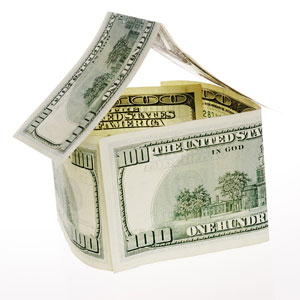How Property Appraisers Determine Property Value
By Steven Roberts Updated on 6/23/2017 If you plan on purchasing or selling a home, a home appraiser can help create an objective assessment of the property. Keep reading to learn essential information about property appraisals and find out tips on how you can earn the highest value.
If you plan on purchasing or selling a home, a home appraiser can help create an objective assessment of the property. Keep reading to learn essential information about property appraisals and find out tips on how you can earn the highest value.
Property value depends on several factors, including both the property itself and outside factors. For example, the convenience of public transportation, nearby freeways and schools, the safety of surrounding neighborhoods and the purchase price of other homes with comparable size and amenities in the neighborhood may influence the overall valuation of the home.
However, appraisers are mostly concerned with the property and quality of its condition.
Desirability
Appraisers begin with the basics:
- Property size
- Number of bedrooms and baths
- Garage and yard size
Bigger is better when it comes to property size, and appraisers take this into consideration when deciding the value. Larger properties suggest the potential for home expansion. More bed and baths mean more convenience and comfort, which creates a higher value for a family home purchase.
Appearance
Appraisers also meticulously evaluate the exterior of your home. This includes the quality of the foundation, wood, roof, paint, pavement, grass and gutters. They inspect for damage such as cracks, leaks, material defects, visible termite damage, and chipping paint.
Home Interior
Appraisers look beyond the design and luxury of the interior of your home. Their focus inside is the condition of materials used during construction. Items inspected include:
- Walls
- Flooring
- Windows
- Doors
- Plumbing
- Lighting
- Electrical
- Appliances
Amenities
Amenities is where you have the opportunity to raise the value of your home. Any added features will make your home stand out from the competition. List the improvements you've made as well as the costs for the appraiser to make a note of. Here are some examples of indoor and outdoor amenities that add significant value:
- Central Air Conditioning
- Fireplace
- Security System
- Swimming Pool
- Car Garages
- Landscaping
- Kitchen/Bath Upgrades
- Additions that add square footage or modern features like a walk in closet.
Home Improvements
Investing in your home will pay off in the end. Improvements made since the original purchase of the house will increase the overall value. Home buyers love upgrades and appraisers are very aware. Kitchen and bath improvements increase the home value the most.
3 Tips for a High-Value Appraisal
- Keep It Clean: Appraising isn’t a perfect science, so there will always be room for bias. Keep your home clean inside-out to influence a higher value.
- Repair Damages: If possible, fix the damage yourself and it will also save you money. If you can't DIY the repair, you may want to invest in the repair by a professional.
- Prepare Answers: Provide the correct information and answers any questions honestly as this can help discourage the Appraiser from making a negative evaluation. Also, offer proof of upgrades or repairs can go a long way in your home valuation.

Didn't find the answer you wanted? Ask one of your own.

Contributing Authors
Related Articles
Ask our community a question.
Searching Today's Rates...

Featured Lenders
Lisa Stepp
RBS Citizens
Clifton Park, NY
Kat Whitman
Whitman Met, Inc.
Sacramento, CA
Cameron Burke
Vision One Mortgage
Huntington Beach, CA




